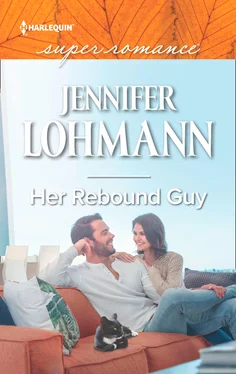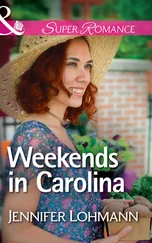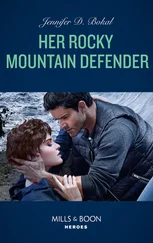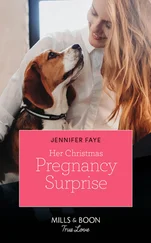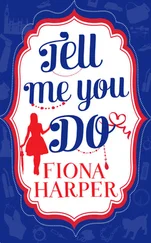CHAPTER FOUR
“SO, TELL ME about your dog. Why is he named Seamus?” Mr. Swoony—she supposed she should be calling him Caleb now—asked as he lounged in the bar’s booth. Lounge was a quiet word for the sprawl of all his limbs across the fabric. Only a man at ease with his body from tip to toe could so easily extend his extremities without worrying about whacking over the large vase of flowers next to his right hand.
He was probably good in bed. A man that comfortable with himself had to be good in bed, right? Or, maybe, it meant that he only thought of himself. What did she know? Neil was the last man she might have looked at and evaluated how good he’d be in bed, and yet she couldn’t remember if she’d ever done that. Since it had been college, probably not.
She took a sip from her Aviation cocktail, smiling a little. At her thoughts. At her lack of experience. At the big leap she felt like she was taking into life. She wasn’t smiling at Caleb, exactly, until she caught his gaze and a shiver of pleasure ran down her spine.
Definitely good in bed. More certainly, it had been over a year since she’d had sex and that was long enough to make a woman imagine orgasms in every man’s gaze.
“Seamus?” She looked away quickly before she actually imagined what the sex would be like. That sounded too much like committing herself to a roll in the hay, and she wasn’t sure she was ready to do that. Over a year might be a long time, but she could wait longer. She wasn’t looking for an open barn door.
“The shelter said he was found muddy, in a swamp. The woman who found him and cleaned him up said he looked like a half-dead beast dragged out of the bogs.” She shrugged, a little self-conscious. “It made me think of Seamus Heaney.”
He raised a black brow, which made her more self-conscious. “Poetry, huh?” Then he smiled and her self-consciousness disappeared with his casual acceptance.
“I’m proof that English majors get jobs.”
He barked a laugh. “So am I.”
They shared another quick glance that made her toes tingle. It was harder to look away this time.
Friends told her that she needed to know what she wanted with this whole dating thing, but they hadn’t told her how to know what the person she had a drink with wanted out of the experience. Well, except for the bride, Jennifer. But Jennifer’s advice had only been to pick the right dating site and avoid handsome men. Caleb was in direct violation of at least one of those pieces of advice.
What did Caleb want?
Unable to bring herself to ask that question, she asked, “What do you do?” instead, spinning her martini glass on the table. His profile had said he was a reporter, but that was vague.
“I write for the Raleigh paper. Politics. I cover the General Assembly.”
That set her back a little in her seat. “Not a simple job. And always something to report on.” Anything happening in national politics had to have a run in the state first, sometimes including the out-and-out battles.
“All those bills made in the dead of night. I have trouble keeping track,” she confessed. “And the laws they pass don’t seem to relate to anything. What does women’s health have to do with motorcycle safety laws?” She’d been against that one on principle. And Leslie was one of her favorite people to work with, so she’d been against the bill that banned people from bathrooms and even called her representatives about that one. She was prouder of her stance when she learned later that the bill had included a bunch of other stuff about restricting local government. Frankly, she was generally against bills coming out of her state capital on principle. Maybe she would be for them under different, more open circumstances, but she didn’t know what was in them because they were presented and passed within hours.
Secrecy was bad, and being against secrecy was easy. That was a political stance she could get behind. But having to admit that she struggled to keep track made her feel like she was out of her league, especially when the only other thing she could think to add was, “Your job sounds hard.”
He smiled, like he heard it all the time. But also like he enjoyed his job and was not-so-secretly pleased every time someone said, “Oohh.”
“It uses my writing skills, which is good. And I like talking to people, and being a reporter gives me an excuse to ask people questions. And,” he shrugged like he was humble about his job, even though she could tell he wasn’t, “I think freedom of the press is important. So, I’m glad to be a part of that.”
“You said English major, not a journalism major. Do you have a wild tale of career changes? Some dark experience in your past that made you determined to expose evildoers and right wrongs?”
“Like a bite from a radioactive spider?” He had the most delightful shrug. Comfortable and agreeable, like he’d seemed to be all night. She tried to imagine him tracking down sources—if they even called them sources—or badgering someone he was interviewing until they gave away their secrets. Tried and couldn’t. He seemed too slippery to be hard, and she didn’t even mean slippery in a bad way. More like water, flowing around obstacles and making its own path.
And, like water, he could settle into a comfortable stillness, which he did as he answered her question. “I liked to write as a kid, tell stories and make up lives of the neighbors’ pets. I’d sit them down and ask them questions about their day, then report the gossip to my parents.”
His face froze for a moment, so clear that she thought she could see all the way to the bottom of his soul and some inner hurt he was trying to hide, but then he smiled and the secrets he might be keeping were obscured by the mask he wore.
A reflecting pool she would be tempted to sit and think next to suddenly revealing the soul of the water sprite inside.
“My dad didn’t like me telling those stories,” he said. “Especially after Mom died. She’d been the person who liked to hear them most. ‘Kids’ nonsense,’ he used to say, and he would tell me I was too old to be playing make-believe.”
His cheeks were smooth, his eyes were wide and clear, and anyone glancing over at their table wouldn’t think he might be saying anything upsetting. For all Beck could tell, he didn’t consider this to be an upsetting story.
Still pretending, she thought. Only he doesn’t realize he’s pretending anymore.
“That’s the kind of guy my dad is, you know. Old-fashioned. Men are men and that means stoic faces and no talking to pets. So, I would tell the stories to my younger sister and we would play television. Game shows and TV news, with me reporting on the pets. For some reason, my sister always reported on weather and sports.” His voice softened when he spoke about his sister, and that was cute. And, if she were honest, made her a bit jealous as an only child.
“Anyway,” he said with a shake of his head that cleared the emotion out of his voice, “Once I got to college, I thought I should be a writer, because I liked to tell those stories. My roommate worked for the college paper and I tagged along, writing stories for them. I covered town politics and how it affected the college.”
He snorted. “I used to joke that college town politics were a lot like the politics of the pets—all that emotion sharing a tight space. One Christmas, I was watching the nightly news with my dad and sister. I don’t even remember what the reporter was talking about, but I remember my dad complaining about politicians and ‘the man’ and the cheats. It’s not like he did bad. He was a car salesman at a nice dealership and he made a good living, but he seemed to always think the world was keeping secrets from him and those secrets were why he wasn’t doing better.”
Читать дальше
